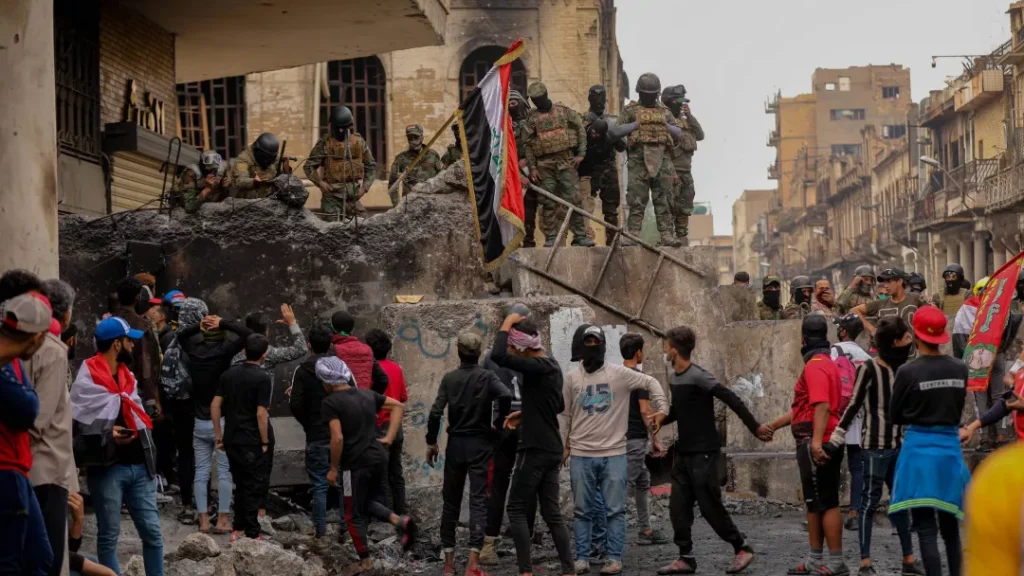The Iraqi government has effectively allowed militias to carry out brutal attacks on peaceful protesters, sending a clear message from Iran: it will not tolerate any threat to its influence in Iraq, and the country will remain firmly under its control. In the wake of the deadly crackdown on protesters in Baghdad, Amnesty International has called on Iraqi authorities to restrain their forces. Armed men—equipped with rifles, knives, batons, and screwdrivers—stormed the demonstrations, attacking unarmed civilians with ruthless violence. Witnesses described the attackers as a pack of wild, bloodthirsty wolves. Unsurprisingly, these militants were seen carrying banners representing Iran-backed Shiite jihadist organizations.
One witness described how the militants arrived in small trucks and minibuses. Another confirmed that Iran-loyal jihadists opened fire on unarmed protesters, targeting them directly, rather than shooting into the air. The fact that these attackers were not masked indicated their complete lack of fear, showing they knew the Iraqi government would not hold them accountable. This is a glaring violation of both international human rights law and Iraq’s own legal prohibitions on militias. Despite this, these groups remain active and unchallenged.
The situation paints a troubling picture: the militants are emboldened, and the Iraqi state is powerless to stop them. The violence against these protesters underscores the impotence of the government, which has shown itself unable or unwilling to prosecute those responsible. In broad daylight, these militias, under the full protection of Iran, have slaughtered dozens without any fear of consequences. With the support of Iran’s hardline Shiite forces, the militias have free reign to act with impunity.
This power dynamic is not new. The Iraqi Ministry of the Interior, which controls the police, is infiltrated at every level by members of the Badr Organization, one of the most powerful Iran-backed militia groups in Iraq. Prime Minister Adel Abdul-Mahdi and his predecessors have long supported Khomeinism, Iran’s theocratic ideology. Iraq’s security forces, from the federal police to the military and intelligence agencies, are filled with individuals loyal to Tehran and its vision for Iraq as a subservient state.
It is clear that the Iraqi government is either complicit in or powerless to stop the violence being carried out by these Shiite jihadists. The fact that thousands of unmasked militants could penetrate the heart of Baghdad, evading numerous security checkpoints, speaks to the government’s indifference or inability to protect its citizens. This was no accident. It was a deliberate and calculated assault on the very notion of democracy that the Iraqi government claims to uphold.
Iran has a vested interest in maintaining its grip on Iraq, as losing the country would severely hinder its regional ambitions in Syria, Lebanon, and Yemen. Through its brutal tactics, Iran is sending a message to the Iraqi people: resistance will not be tolerated. The government’s inaction signals to the protesters that they are on their own. Rather than silencing the people, the horrific violence may push them to abandon peaceful protests and take up arms in self-defense against the Iran-backed militias. The message is clear: Iraq’s future remains shackled under the weight of foreign influence and local corruption.
